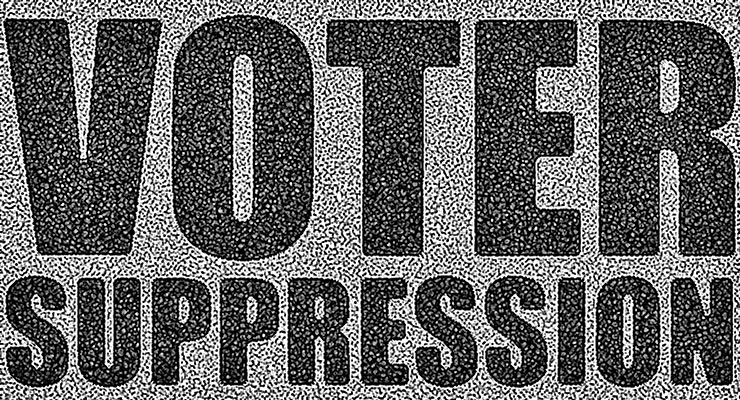
From nonprofit Common Cause:
Today, Common Cause issued a new report examining how corrections industry influence, felony disenfranchisement and prison gerrymandering fuel mass incarceration and undermine democracy. Democracy Behind Bars looks at our broken criminal justice system and how it is manipulated for the benefit and profit of the prison industry. The report goes on to examine the work going on in the states to restore voting rights to citizens who have served their time and to curb mass criminalization and incarceration.
“Americans expect and deserve a true participatory democracy, but millions of citizens have found themselves stripped of their right to vote even after they have served their sentences,” said Karen Hobert Flynn, Common Cause President. “Mass criminalization and incarceration, and those who profit from it, continue to undermine our democracy. But at the state level, voters and legislators are taking the initiative and moving to reform the system and repair the damage it has done to our democracy.”
As the report emphasizes, the American criminal justice system “is influenced by many of the same political forces that distort and corrupt other areas of government policy and action: the influence of special interest money in elections and lobbying of our elected officials, partisan disputes over voting rights and redistricting, abuses of power, and ethical breaches.”
“Mass incarceration has risen to levels that break our democracy,” said Aleks Kajstura, Legal Director, Prison Policy Initiative. “The report rightly highlights issues such as prison gerrymandering – the practice of counting incarcerated people at the location of the prison rather than at home for redistricting. This means that representation is granted based on the size of the prisons rather than the number of actual residents. Through prison gerrymandering, mass incarceration creates pervasive vote dilution that extends to cover most Americans.”
“With the highest incarceration rate of any country in the world, the mass criminalization of our citizens is a defining issue of our time,” said Keshia Morris, Common Cause Census & Mass Incarceration Project Manager. “One in thirty-five adults in this country have been under correctional supervision, but that number swells exponentially in our nation’s poorest regions and neighborhoods. Prison industry influence, felony disenfranchisement and prison gerrymandering are part of how we got here.”
One in thirty-five adults in this country have been under correctional supervision, prison industry influence, felony disenfranchisement and prison gerrymandering are part of how we got here.
Democracy Behind Bars examines a variety of factors that contribute to including:
- Felony Disenfranchisement
- Prison Gerrymandering
- Corrections Industry Money in Politics
- Incentives for Over-Policing
- The Opportunities for Influence-Buying in Prosecutorial & Judicial Elections
- The Adverse Impacts of Industry Influence on the Prison Population
The report release featured a panel of advocates and experts including Marc Howard, director of the Prisons and Justice Initiative at Georgetown University, Aleks Kajstura of the Prison Policy Initiative, Nicole Porter of The Sentencing Project and Davon Woodley, who has devoted his life since his release from prison to helping former incarcerated persons readjust to society. The event will be livestreamed on the Common Cause Facebook page at 10 a.m. today and a recording will be available after.
The report was written by Joe Maschman, Common Cause Legal Fellow, with editing and other assistance from Keshia Morris, Census & Mass Incarceration Project Manager; Paul S. Ryan, Vice President for Policy and Litigation, and Dale Eisman, Senior Writer/Editor. Research assistance was provided by Common Cause interns Alex Brown, Sam Genova, Raulston Tiger Li, Nadja Linke, and Lily Oberstein. Kerstin Diehn was responsible for layout and design, Jack Mumby, Common Cause’s deputy digital director, for website development and Kenneth Campell for video support.
To view the full report, click here.
Leave a Reply